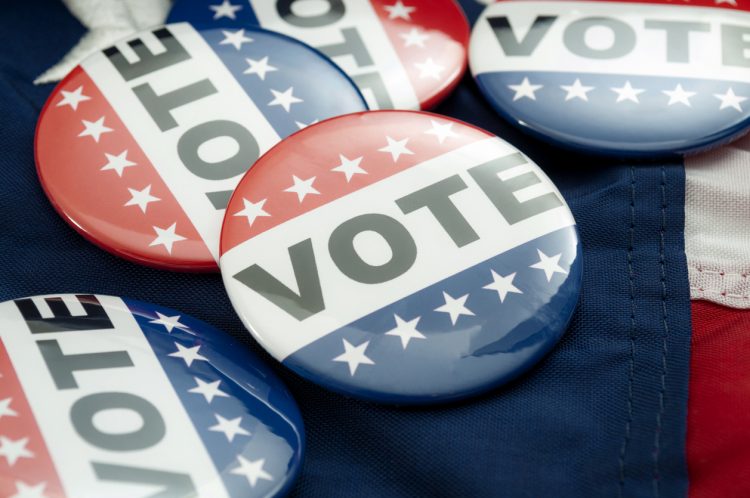Marcus Alan McGhee, Staff Attorney | Indiana Commission on Judicial Qualifications
Judges and judicial candidates must, to the greatest extent possible, be free and appear to be free from political influence and partisan interests. See Ind. Code of Jud. Cond., Canon 4, General Consideration. This can be an arduous task as judicial candidates merge into the steady stream of political campaigns going on around them. Nevertheless, it is imperative that, in addition to following the relevant election laws, candidates for judicial office properly file their candidacy, submit financial disclosures, and ensure their financial transactions adhere to the Code of Judicial Conduct. See, “On Your Mark, Get Set . . . Go?,” Indiana Court Times, Spring 2014, April 25, 2014.
Following those procedural requirements, candidates must then attempt to properly frame their candidacy to the electorate. The substantive steps taken to establish credibility, garner favor, and stand out are replete with opportunities for candidates to misspeak, mislead, or misbehave. See “Speak when you are angry & you will make the best speech you’ll ever regret,” Indiana Court Times, Summer 2014, June 26, 2014.
Like with many communication failures, internet interplay is at play. The question to be considered is whether a judge violates Rule 4.1(A)(8) of the Indiana Code of Judicial Conduct, which prohibits judges and judicial candidates from personally soliciting or accepting campaign contributions unless it is done through a campaign committee, if that judge places a “Donate Here” button on their campaign website. Yes, that would likely be a violation. Why? On most campaign pages, there are scores of pictures of only the candidate and writings using singular first-person pronouns (i.e. me, my, I). As a result, it is reasonable for a citizen to believe that it is the candidate who is asking them to donate to their campaign, even if the page is run by a campaign committee member.
If, however, there were pictures of the campaign committee to elect that judicial candidate and statements issued about the candidate in the third person (i.e. he, she, they), then that would properly convey that it is a third party doing the soliciting instead of the candidate. While these grammatical nuances may appear trivial, they very much can change the trajectory of an election.

This happened for a former Ohio judge who was reprimanded for the misleading name tag she wore during her campaign. The judge had served on the Court of Appeals from 2004 until 2011 but had been defeated for reelection in 2010. During the 2012 campaign she wore a name badge identifying herself as “Colleen Mary O’Toole, Judge, 11th District Court of Appeals” and referred to herself as “Judge O’Toole” on her campaign website.
At her disciplinary hearing, O’Toole insisted she maintained her “judge” moniker because people continued to call her judge after she left the bench. The Court held that the public may have used such a prefix as a sign of respect, but it was ceremonial and carried no weight. O’Toole contested, saying she was still “a” judge, just not a “sitting judge.” The Court rebuffed that argument, holding that there was no such legal distinction in the law and that O’Toole no longer had a courtroom, a docket, or any judicial authority.
In her last volley, O’Toole attempted to compare herself to a retired judge, who was not active but could take cases as assigned. In their final and winning spike, the Court distinguished O’Toole from retired judges—who participated in what would be analogous to Indiana’s Senior Judge Program—by illuminating the fact that she did not voluntarily retire but was ousted by the voting public. They held that while there are provisions for voluntarily retired judges to continue to participate on a case-by-case basis, those expelled from the judiciary are not afforded such privileges. See In re Judicial Campaign Complaint Against O’Toole, 141 Ohio St.3d 355, 2014-Ohio-4046.
Despite the privileges mentioned in O’Toole regarding voluntarily retired judges, voluntarily retiring judges are treated differently. For example, in Indiana, the Commission released Advisory Opinion #1-19 to dispel the notion that a retiring judge could publicly endorse a judicial candidate for his or her replacement. It was posited that an existing jurist could in effect select a successor by announcing support for a specific person and that such a proclamation would be acceptable due to the incumbent judge ending their judicial career.
The Commission disagreed, finding that a presiding judge’s ability to maintain impartiality is damaged following an endorsement (or statement in opposition) because at that moment, the public could believe the judge to be biased in favor of or against the candidate’s views when those issues come before the court. See Indiana Commission on Judicial Qualifications, Advisory Opinion #1-19.
However, the O’Toole case was correct that senior judges are permitted to do things others judicial officers cannot. For example, in Indiana, those who serve as senior judges are permitted to publicly endorse candidates for judicial office. Advisory Opinion #1-19 held that the endorsement was permissible because of the periodic, part-time status as a senior judge and because those individuals typically simultaneously maintained a law, arbitration, or mediation practice. Nevertheless, that power to endorse is tempered by Rule 1.3, which prohibits judges, including senior judges, from abusing the prestige of judicial office to advance the personal interests of the judge or others. This means a person who is a senior judge is permitted to issue such endorsement in his or her name, but to use their “senior judge” title or appear in campaign materials donning a judicial robe would undoubtedly be trading on the prestige of that office to advance the political interest of the person the senior judge is endorsing.
Judicial officers seeking ethical advice on the Code of Judicial Conduct may contact Marcus Alan McGhee.